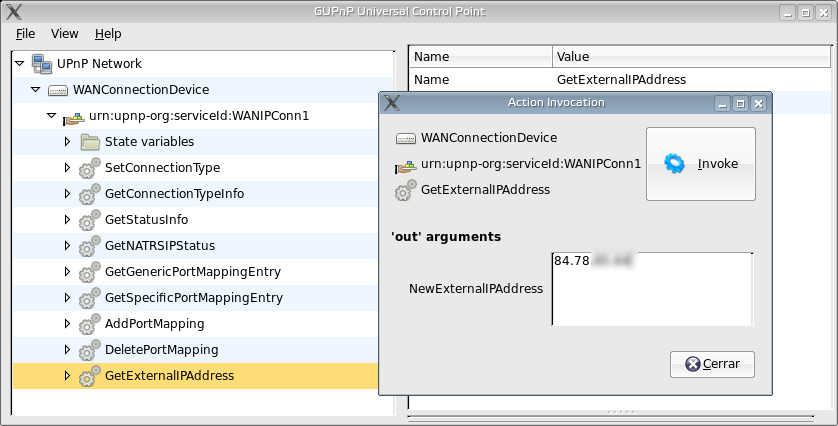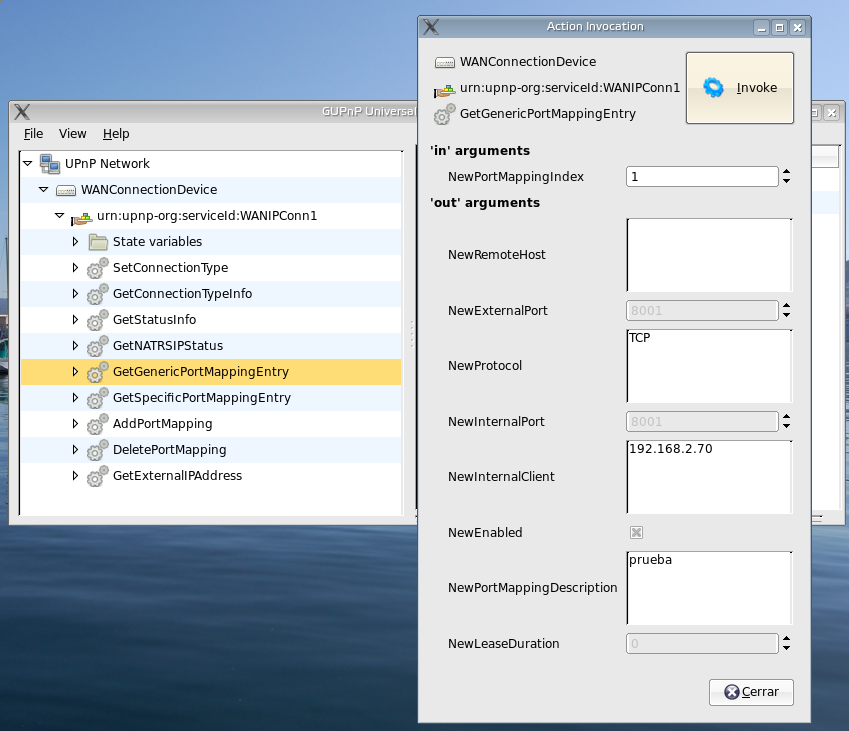If you are experiencing connection problems and you are a power user, try the following steps to test the UPnP features of your router.
Test that the tool is serving properly in local. Share some directory (eg: under the name "share") and point your browser to http://localhost:8001/share . It should show the directory listing.
If you have the opportunity, test the share from your local network (LAN or WIFI) using another computer. You'll need to find the local network IP of your computer. Just change to the Log tab and look for this line: "Found internal IP: 192.168.2.70" (with your corresponding IP, of course).
Point the browser in the other computer to http://192.168.2.70/share . If it doesn't work, maybe you have some firewall enabled that is cutting the access. You'll need to open port 8001 (I can't give you more advice on that, refer to the documentation of your firewall).
If that works, look for the following UPnP log lines (with your real address instead of 1.2.3.4):
Found external IP: 1.2.3.4 Creating redirection Redirection performed External URL: http://1.2.3.4:8001
That would mean that the redirection is performed and your share should be available from outside using http://1.2.3.4:8001/share.
If you get this message instead of the previous one:
External IP not found. Check that your router has UPnP enabled and working
Then there's some problem with UPnP. It can be caused by two factors:
If you want to make more tests, I'd suggest you to install the gupnp-tools
package and launch the gupnp-universal-cp tool by hand from a text console.
If your router is properly offering UPnP services, you should be able to see
it in the tree. Unfold the tree and look for a node
called GetExternalIPAddress. Double click on it and press "Invoke" in the
popup window that has just appeared. It should show you the external public
IP address.

If everything goes right and you get the IP without errors, then it's time to test Meiga
redirection utility and see if there's any problem. From a second text console, launch fwupnp
without parameters. This will show the options of Meiga redirection utility. From there you
can ask for the external IP:
$ fwupnp -i 1.2.3.4
You also can ask for the local IP and do the redirection by hand:
$ fwlocalip 192.168.2.70 $ fwupnp -r 8001 8001 192.168.2.70 prueba 0 Redirection *:8001 --> 192.168.2.70:8001 for 0 seconds performed
Then check from gupnp-universal-cp that the redirection has been performed,
by invoking GetGenericPortMapping (try changing the index until
you find the right redirection or until some errors are shown in the text console
telling that the index is too high, that is, all the existing redirections have already
been seen).

Finally, don't forget to delete the redirection:
$ fwupnp -d 8001 Deleted redirection *:8001
If something goes wrong in the previous tests, then some error in the UPnP layer is happening, caused either by your router implementation, by the libgupnp implementation or by a bug in Meiga.
Please, attach the results of the tests to any email asking for advice about connection problems.
Thank you very much!